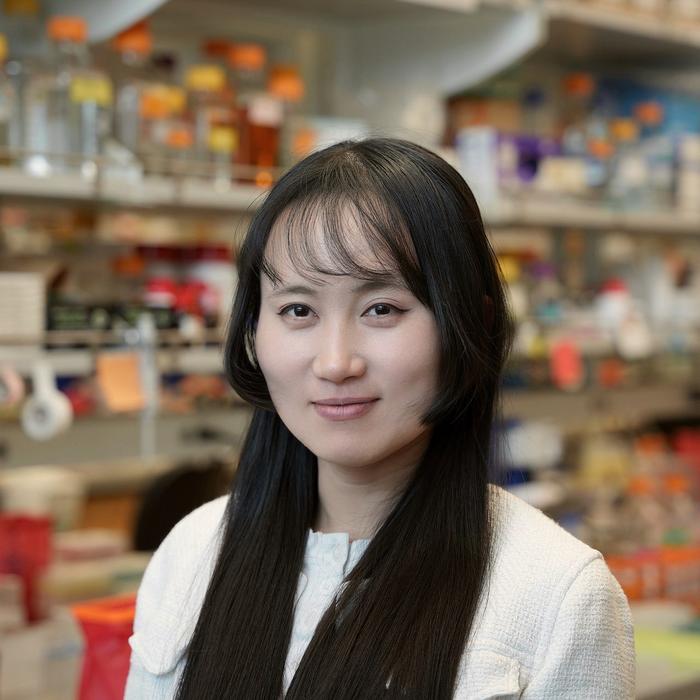Rice University has made a strategic addition to its Department of Biosciences by recruiting Dr. Linna An, a pioneering computational biochemist, bolstered by a significant $2 million grant from the Cancer Prevention and Research Institute of Texas (CPRIT). Dr. An joins Rice after a groundbreaking tenure at the University of Washington’s Institute for Protein Design, where she contributed extensively to the development of synthetic proteins that function as biosensors. These innovative biosensors hold immense promise for revolutionizing early cancer detection, drug monitoring, and personalized medical diagnostics, embodying a potent fusion of computational biology and biochemistry.
At the core of Dr. An’s research lies the development of computational methods that harness the power of deep learning to engineer proteins with ultra-specific binding capabilities. Unlike traditional cancer research, which often focuses on genetic and transcriptomic data, Dr. An’s work delves into the intricate world of protein-small molecule interactions. These small molecules encompass a vast spectrum, including hormones, vitamins, and the majority of FDA-approved drugs, all of which play crucial roles in human physiology and disease progression, particularly cancer.
The traditional molecular portraits of cancer emphasize large-scale genomic and transcriptomic landscapes; however, the metabolic milieu involving small molecules remains less charted. Dr. An’s research aims to fill this critical gap by designing proteins that can selectively detect and interact with these small molecules to provide real-time insights into cancer metabolism. By constructing synthetic proteins tailored to monitor subtle biochemical changes indicative of tumor behavior, her work offers a novel pathway to decipher the metabolism landscape of cancer.
The fundamental challenge in this domain is the complexity of designing proteins that maintain stability and function under physiological conditions while exhibiting high specificity toward target small molecules. Dr. An addresses this through advanced computational enzyme design and functional protein modeling, leveraging machine learning algorithms that predict protein folding and binding affinity with remarkable accuracy. This level of precision facilitates the creation of customized molecular sensors capable of transducing binding events into readable signals.
One of the transformative aspirations of Dr. An’s research is the integration of these synthetic proteins into wearable devices. By converting molecular detection into electrical or optical signals, such biosensors could allow patients—especially those undergoing cancer therapy—to monitor their treatment response continuously from home. Since many cancer therapeutics have narrow therapeutic windows with potential toxic side effects, real-time monitoring could optimize dosing regimens, thereby enhancing efficacy and reducing adverse events.
Dr. An’s protein design extends beyond detection; her lab also focuses on engineering enzymes that catalyze novel chemical reactions crucial for drug synthesis. Custom-designed enzymes built through computational approaches can streamline the manufacture of complex pharmaceuticals, potentially reducing costs and environmental impact associated with traditional synthetic chemistry methods. This dual focus on biosensing and enzyme engineering underscores the versatility of computational protein design as a tool for both diagnostics and therapeutics.
Rice University’s vibrant research ecosystem and its proximity to the Texas Medical Center (TMC), the world’s largest medical complex, were decisive factors influencing Dr. An’s decision to join the institution. The collaborative environment fosters interdisciplinary work, bringing together experts in biochemistry, computational biology, engineering, and clinical medicine. This synergy is essential for translating Dr. An’s computational models into clinically viable technologies that can impact cancer care on a broad scale.
The CPRIT-funded recruitment of Dr. An exemplifies Texas’s commitment to advancing cancer research through investment in cutting-edge science and top-tier talent. Since its inception in 2007, CPRIT has injected over $3.9 billion into cancer research and prevention initiatives statewide, significantly elevating Texas’s status as a hub for biomedical innovation. Dr. An’s appointment strengthens Rice’s burgeoning profile in computational biology, propelling it to the forefront of cancer metabolism research.
Cancer metabolism, a complex interplay involving numerous small molecules, presents both challenges and opportunities for understanding tumor growth and treatment resistance. Dr. An’s approach leverages computational protein design to dissect this metabolomic web, enabling precise measurement of metabolic shifts in cancerous tissues. Such insights could unravel mechanisms of drug resistance and identify novel biomarkers, ultimately guiding personalized therapy.
Another dimension of Dr. An’s work involves integrating biosensors with computational models that predict physiological responses, thereby enhancing the predictive power of diagnostics. By combining empirical binding data with machine learning algorithms, her research fosters a feedback loop where protein designs are iteratively refined to better capture the dynamic biochemical environment of disease states.
Moreover, the fusion of synthetic biology, machine learning, and protein engineering pioneered in Dr. An’s research signifies a paradigm shift in how we approach molecular medicine. This multidisciplinary methodology circumvents many limitations inherent in conventional lab-based protein engineering, accelerating both the pace and scope of discovery.
As Dr. An continues to build her research portfolio at Rice, her focus remains on expanding the capabilities of synthetic proteins to address diverse biomedical challenges beyond cancer. Her vision encompasses a future where customizable proteins become integral components of diagnostic platforms, therapeutic agents, and biomanufacturing pipelines.
This groundbreaking work heralds a new era in cancer research and molecular diagnostics, characterized by the seamless integration of computational innovation and biochemical expertise. With ongoing support from CPRIT and the collaborative spirit at Rice, Dr. Linna An is poised to redefine our understanding of cancer metabolism and to catalyze the development of technologies that could transform patient care worldwide.
Subject of Research: Computational protein design for cancer detection, enzyme engineering, and metabolic landscape mapping of cancer small molecules.
Article Title: Rice University Recruits Computational Biochemist Linna An with $2 Million CPRIT Award to Advance Cancer Metabolism Research
News Publication Date: June 30, 2025
Web References: https://news.rice.edu/
Image Credits: Photo courtesy of Linna An
Keywords: Cancer research, Protein design, Biochemistry, Small molecules, Enzyme design, Biotechnology




